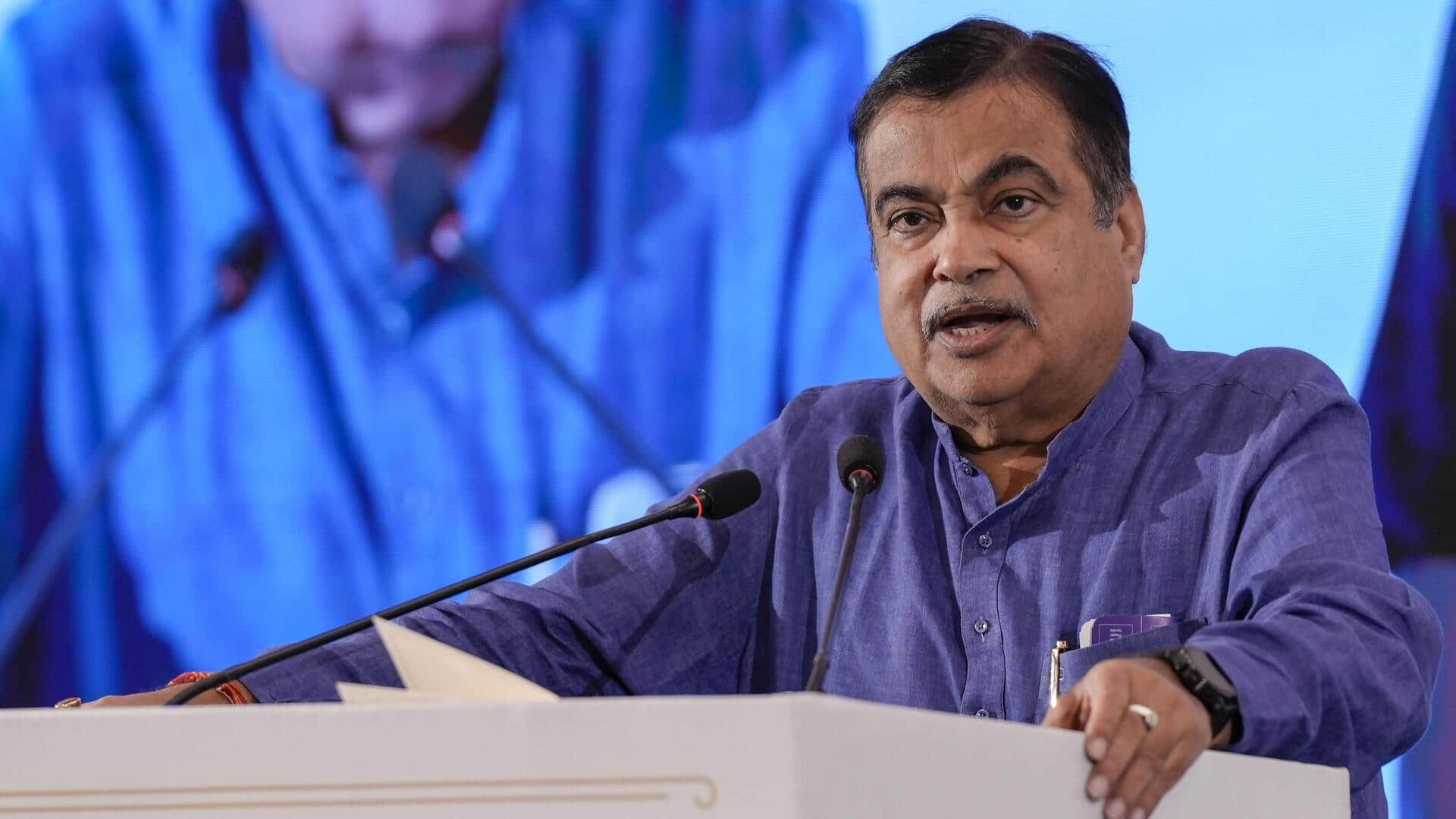
Adapt to EV trend or pay price, Gadkari warns automakers
What's the story
Union Road Transport and Highways Minister Nitin Gadkari has issued a stern warning to automakers, who are reluctant to transition toward electric vehicle (EV) production. Speaking at an automotive component makers' convention in V, he stated that these companies will face financial consequences if they do not adapt to the evolving market demands. "Presently, they (fossil fuel-based automakers) have got good sales... they don't want to change... But they will face the cost," Gadkari said.
Market influence
Market forces will drive EV transition
Gadkari emphasized that market forces would eventually push these companies to diversify their product range. He urged them to embrace advanced, cost-effective fuel technologies that reduce pollution and are reasonably priced. "The people who are going to accept the best technology in the world, cost-saving fuel technology in the world, creating less pollution and having reasonably good cost, they already have a good future," he said.
Consumer demand
Gadkari highlights consumer preference for affordable EVs
The minister underscored that consumers prefer vehicles that are cheap, and automakers must align with this market demand. He warned companies delaying their transition to green technologies, stating they risk losing market share once they decide to enter the EV sector. "The market is full of demand. The survival of the fittest is the law," Gadkari said.
Industry response
Indian automakers' stance on EV production
In response to Gadkari's statements, several Indian automakers have already begun their journey toward electric mobility. Tata Motors has established a significant presence in the EV market with multiple models. However, other companies like Maruti Suzuki and Mahindra & Mahindra are currently focusing on mild and strong hybrid vehicles. According to the Society of Manufacturers of Electric Vehicles, around 1.6 million EVs were sold in India in FY24, with four-wheelers accounting for 5.4% of these sales.
Price prediction
Price parity between EVs and fuel-driven vehicles
Gadkari also predicted that price parity between EVs and petrol- or diesel-driven cars would be achieved in about two years. He believes this will happen as more automotive and battery storage manufacturers enter the market, leading to a decrease in EV battery prices. This reduction is expected to make electric vehicles more affordable for consumers, thereby increasing their appeal.
Fuel alternative
Need for indigenous, pollution-free fuel substitute
Gadkari stressed the need for an indigenous, pollution-free, and cost-effective substitute for imported fuel. He noted that fossil fuels constitute a significant portion of India's imports and reducing this dependence is a challenge for the government. The minister expressed optimism about semiconductor technology and battery storage technology developed by the private sector, making green energy-powered automobiles more affordable and efficient.